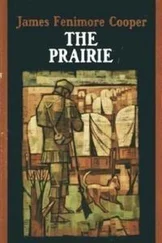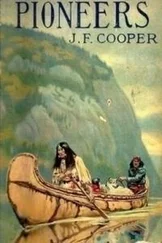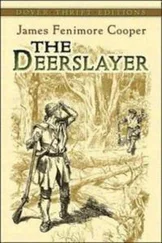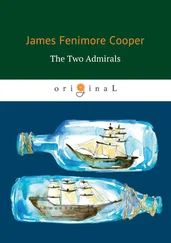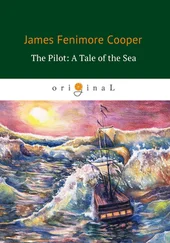Джеймс Купер - The Lake Gun
Здесь есть возможность читать онлайн «Джеймс Купер - The Lake Gun» — ознакомительный отрывок электронной книги совершенно бесплатно, а после прочтения отрывка купить полную версию. В некоторых случаях можно слушать аудио, скачать через торрент в формате fb2 и присутствует краткое содержание. Жанр: Прочие приключения, на английском языке. Описание произведения, (предисловие) а так же отзывы посетителей доступны на портале библиотеки ЛибКат.
- Название:The Lake Gun
- Автор:
- Жанр:
- Год:неизвестен
- ISBN:нет данных
- Рейтинг книги:5 / 5. Голосов: 1
-
Избранное:Добавить в избранное
- Отзывы:
-
Ваша оценка:
- 100
- 1
- 2
- 3
- 4
- 5
The Lake Gun: краткое содержание, описание и аннотация
Предлагаем к чтению аннотацию, описание, краткое содержание или предисловие (зависит от того, что написал сам автор книги «The Lake Gun»). Если вы не нашли необходимую информацию о книге — напишите в комментариях, мы постараемся отыскать её.
The Lake Gun — читать онлайн ознакомительный отрывок
Ниже представлен текст книги, разбитый по страницам. Система сохранения места последней прочитанной страницы, позволяет с удобством читать онлайн бесплатно книгу «The Lake Gun», без необходимости каждый раз заново искать на чём Вы остановились. Поставьте закладку, и сможете в любой момент перейти на страницу, на которой закончили чтение.
Интервал:
Закладка:
James Fenimore Cooper
The Lake Gun
{This text has been transcribed and annotated by Hugh C. MacDougall, Founder and Secretary of the James Fenimore Cooper Society (jfcooper@wpe.com), who welcomes corrections and emendations. The text has been transcribed as written, except that because of the limitations of the Gutenberg Project format, italicized words have been transcribed in FULL CAPITALS.}
{"The Lake Gun" is one of James Fenimore Cooper's very few short stories, and was written in the last year of his life. It was commissioned by George E. Wood for publication in a volume of miscellaneous stories and poems called "The Parthenon" (New York:
George E. Wood, 1850), and Cooper received $100 for it. The story was reprinted a few years later in a similar volume called "Specimens of American Literature" (New York, 1866). It was published in book form in 1932 in a slipcased edition limited to 450 copies (New York: William Farquhar Payson, 1932) with an introduction by Robert F. Spiller.}
{Introductory Note: The "Lake Gun," though based on folklore about Seneca Lake in Central New York State (the "Wandering Jew" and the "Lake Gun"), and on a supposed Seneca Indian legend, is in fact political satire commenting on American political demagogues in general, and in particular on the then (1850) Whig Senator from New York State, William Henry Seward (1801–1872), who had served as Governor of New York (1838–1842) and would later become Secretary of State (1861–1869) under Presidents Lincoln and Johnson. By 185 °Cooper feared that unscrupulous political extremists, mobilizing public opinion behind causes such as abolitionism, were leading America towards a disastrous Civil War. Cooper probably obtained his local lore about Seneca Lake while visiting his son Paul, who attended Geneva College (now Hobart College) on Lake Seneca from 1840–1844.}
The Lake Gun by
James Fenimore Cooper
The Seneca is remarkable for its "Wandering Jew," and the "Lake Gun."
The first is a tree so balanced that when its roots are clear of the bottom it floats with its broken and pointed trunk a few feet above the surface of the water, driving before the winds, or following in the course of the currents. At times, the "Wandering Jew" is seen off Jefferson, near the head of this beautiful sheet; and next it will appear anchored, as it might be, in the shallow water near the outlet.
{"Wandering Jew" = The medieval legend of Ahasueras, who mocked Christ on his way to the cross and was condemned to live until Judgment Day, is widespread throughout Europe, though he was only identified as a "Jew" in the 17th century-students at Geneva College (now Hobart College) applied the name to a supposedly unsinkable floating log in
Lake Seneca, identified as the legendary "Chief Agayentha"; Jefferson = I have been unable to locate any "Jefferson" on Lake Seneca}
For more than half a century has this remnant of the forest floated about, from point to point, its bald head whitening with time, until its features have become familiar to all the older inhabitants of that region of country. The great depth of the Seneca prevents it from freezing; and summer and winter, springtime and autumn, is this wanderer to be observed; occasionally battling with the ice that makes a short distance from the shore, now pursuing its quiet way before a mild southern air in June, or, again, anchored, by its roots touching the bottom, as it passes a point, or comes in contact with the flats.
It has been known to remain a year or two at a time in view of the village of Geneva, until, accustomed to its sight, the people began to think that it was never to move from its berth any more; but a fresh northerly breeze changes all this; the "Jew" swings to the gale, and, like a ship unmooring, drags clear of the bottom, and goes off to the southward, with its head just high enough above water to be visible. It would seem really that his wanderings are not to cease as long as wood will float.
{Village of Geneva = now the City of Geneva, at the northern end of Lake Seneca}
No white man can give the history of this "Jew." He was found laving his sides in the pure waters of the Seneca by the earliest settlers, and it may have been ages since his wanderings commenced. When they are to cease is a secret in the womb of time.
The "Lake Gun" is a mystery. It is a sound resembling the explosion of a heavy piece of artillery, that can be accounted for by none of the known laws of nature. The report is deep, hollow, distant, and imposing. The lake seems to be speaking to the surrounding hills, which send back the echoes of its voice in accurate reply. No satisfactory theory has ever been broached to explain these noises. Conjectures have been hazarded about chasms, and the escape of compressed air by the sudden admission of water; but all this is talking at random, and has probably no foundation in truth. The most that can be said is, that such sounds are heard, though at long intervals, and that no one as yet has succeeded in ascertaining their cause.
{"The Lake Gun" = The "Lake Gun" or "Lake Drum" is a mysterious booming sound occasionally heard on Lake Seneca (and on neighboring Lake Cayuga), which has been given a variety of scientific, literary, and legendary interpretations.}
It is not many lustrums since curiosity induced an idler, a traveler, and one possessed of much attainment derived from journeys in distant lands, first to inquire closely into all the traditions connected with these two peculiarities of the Seneca, and, having thus obtained all he could, to lead him to make the tour of the entire lake, in the hope of learning more by actual personal observation. He went up and down in the steamboat; was much gratified with his trip, but could see or hear nothing to help him in his investigation. The "Gun" had not been heard in a long time, and no one could tell him what had become of the "Wandering Jew." In vain did his eyes roam over the broad expanse of water; they could discover nothing to reward their search. There was an old man in the boat, of the name of Peter, who had passed his life on the Seneca, and to him was our traveler referred, as the person most likely to gratify his curiosity. Fuller (for so we shall call the stranger for the sake of convenience) was not slow to profit by this hint, and was soon in amicable relations with the tough, old, fresh-water mariner. A half-eagle opportunely bestowed opened all the stores of Peter's lore; and he professed himself ready to undertake a cruise, even, for the especial purpose of hunting up the "Jew."
{lustrum = a period of five years; half eagle = a U.S. gold coin worth $5.00}
"I haven't seen that ere crittur now"-Peter always spoke of the tree as if it had animal life-"these three years. We think he doesn't like the steamboats. The very last time I seed the old chap he was a-goin' up afore a smart norwester, and we was a-comin' down with the wind in our teeth, when I made out the 'Jew,' about a mile, or, at most, a mile and a half ahead of us, and right in our track. I remember that I said to myself, says I, 'Old fellow, we'll get a sight of your countenance this time.' I suppose you know, sir, that the 'Jew' has a face just like a human?"
"I did not know that; but what became of the tree?"
"Tree," answered Peter, shaking his head, "why, can't we cut a tree down in the woods, saw it and carve it as we will, and make it last a hundred years? What become of the tree, sir;-why, as soon as the 'Jew' saw we was a-comin' so straight upon him, what does the old chap do but shift his helm, and make for the west shore. You never seed a steamer leave sich a wake, or make sich time. If he went half a knot, he went twenty!"
This little episode rather shook Fuller's faith in Peter's accuracy; but it did not prevent his making an arrangement by which he and the old man were to take a cruise in quest of the tree, after having fruitlessly endeavored to discover in what part of the lake it was just then to be seen.
Читать дальшеИнтервал:
Закладка:
Похожие книги на «The Lake Gun»
Представляем Вашему вниманию похожие книги на «The Lake Gun» списком для выбора. Мы отобрали схожую по названию и смыслу литературу в надежде предоставить читателям больше вариантов отыскать новые, интересные, ещё непрочитанные произведения.
Обсуждение, отзывы о книге «The Lake Gun» и просто собственные мнения читателей. Оставьте ваши комментарии, напишите, что Вы думаете о произведении, его смысле или главных героях. Укажите что конкретно понравилось, а что нет, и почему Вы так считаете.

![Джеймс Купер - Пионеры, или У истоков Саскуиханны [The Pioneers, or The sources of the Susquehannah]](/books/395797/dzhejms-kuper-pionery-ili-u-istokov-saskuihanny-t-thumb.webp)
![Джеймс Купер - Последний из могикан, или Повествование о 1757 годе [The Last Of The Mohicans]](/books/397341/dzhejms-kuper-poslednij-iz-mogikan-ili-povestvovan-thumb.webp)
![Джеймс Купер - Зверобой, или Первая тропа войны [The Deerslayer, or The First Warpath]](/books/398571/dzhejms-kuper-zveroboj-ili-pervaya-tropa-vojny-the-thumb.webp)
